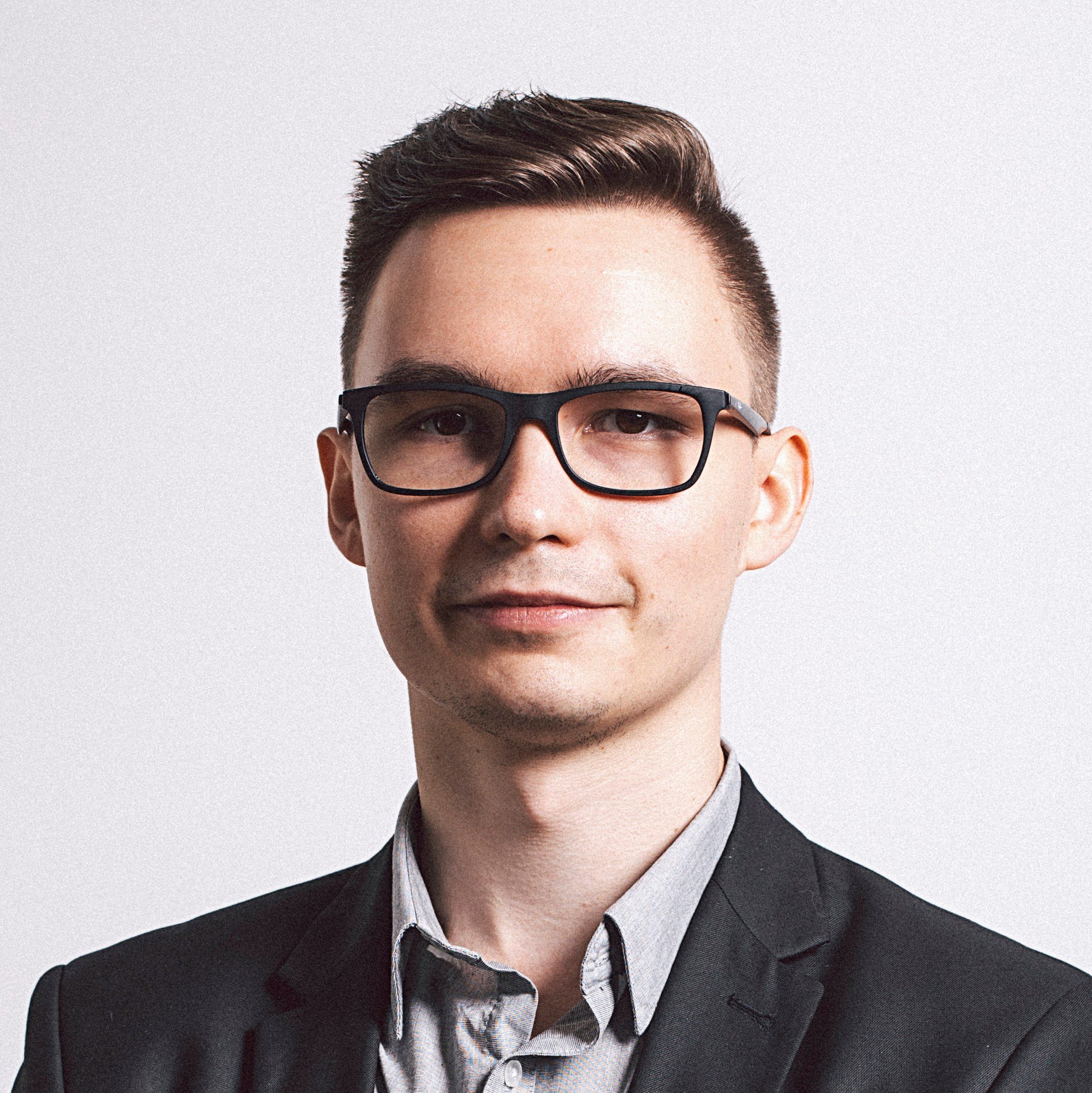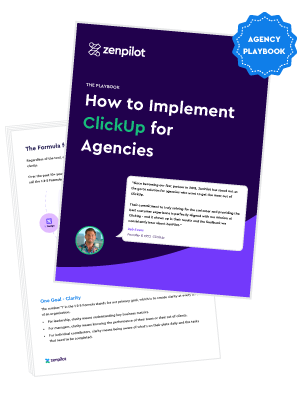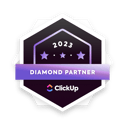How to Use Boundaries and Priorities to Grow an Agency That Fits Your Life (feat. Carlos Hidalgo)

“I had bought into this idea that you had to sacrifice everything you had to kill yourself for growth. And it cost me dearly. I made some really poor decisions.”
Carlos Hidalgo is co-founder & CEO of Digital Exhaust, a Utah-based data-driven, AI-enabled agency with a belief that "growth is a state of being, not just a goal to be achieved".
But he's also a man with a dramatic story of putting his business ahead of his other life priorities—and learning some very hard lessons from that.
This episode of Agency Journey will be a perfect reality check for agency owners, and an opportunity to re-assess the importance you should put on your agency relative to the current stage of your life journey.
It will be especially relevant if you're balancing being a business owner with being a spouse, a parent, and a person driven by faith.
Carlos talked about:
💡 The pivotal moments that reshaped Carlos's perspective on work-life balance and led him to reassess his priorities—including stepping down from one of his previous agencies.
💡 Practical wisdom on setting non-negotiable boundaries, prioritizing well-being, and staying true to your business ethos.
💡 Specific practices and habits Carlos introduced with his wife and himself to build a balanced and fulfilling life as an agency owner.
💡 The virtues of being selective about what you're willing to invest yourself in, and how much.
Resourced Mentioned:
📚 Digital Exhaust
📚 The UnAmerican Dream by Carlos Hidalgo (book)
📚 Carlos' LinkedIn
🛠️ AI tools: Otter, ChatGPT, Jasper
You can also scroll below for a collection of Carlos' best quotes from the show!
On Carlos' Agency, Digital Exhaust
Carlos' current agency is called Digital Exhaust. In his own words:
"Digital Exhaust is a growth consultancy. We work with both B2C and B2B companies, and our belief is that the way you grow is to drive engagement at every stage of a customer lifecycle.
The way we get to that is by using our clients' customer data and our AI and machine learning tools to quickly generate insights on who their customers are, how they move through their journey, what's important to them, who's involved, and then we create engagement strategies that drive growth for our clients."
The AI angle clearly positions Digital Exhaust to take advantage of the current shifts in the agency market.
On Getting His Life Back as an Agency Owner
The first story Carlos shared was about fighting to get his life back after 12 years as an agency CEO.
"I left my corporate job at BMC Software and co-founded a consultancy and an agency called ANNUITAS, which is still running today. I ran that for about 12 years as the CEO, was really proud of some of the accomplishments we achieved.
And then in 2016, announced my resignation from that organization just in an effort to get my life back.
At that point, I had bought into this idea that you had to sacrifice everything you had to kill yourself for growth.
And it cost me dearly. I made some really poor decisions.
And I just realized at the end of 2016, I had to put all of that behind me and really start fresh and first work on me, get back to who God created me to be so that I could perform in all facets of life—even as a business owner.
And I'm glad to say that I took that time and here I am today, and I'm still swinging. "
So what were the "poor decisions" Carlos alluded to?
"I wrote a book about it in 2019 called The Un-American Dream and detailed, chronicled a lot of my poor decisions.
Number one was just making my business the center point.
In that regard, I walked away from my faith and really looked to my business.
Many of us in the professional world find our identity and our purpose in our jobs.
I think it's a wonderful place to apply our purpose.
I think it's a horrible place to find it.
So I swapped those two things and that was definitely a bad choice.
As part of that unrelenting drive for success, which really was about ego for me, I neglected my family.
I had at the start of 2005, I had four small children, an amazing wife.
I was traveling all over the place.
Initially I had started the agency so I could be home more...
...and then as we started to grow and find success, I got sucked back in because it was mine at that point.
And I deluded myself to say, hey, I'm doing this all for my family.
And then I stepped out on my marriage as well.
And again, that had a lot to do with ego.
Thankfully, I have a wife who's amazing.
So we talk about being in our second marriage, but to same but very different people."
Work-Life Balance: What Carlos Is Doing Differently This Time Around
It's fair to say Carlos had lost his grip on work-life balance.
What is he doing differently at Digital Exhaust to reclaim that balance?
"I have a trusted partner, Tracy Thayne.
We're not afraid to have hard conversations.
And before we even started, we said, let's really define what we want.
First and foremost, our prevailing statement is we want to do cool things with cool people.
And that was put to the test immediately when we started the agency where we ended up walking away from a close to a quarter of a million dollar contract that was in our hands.
It was non-competitive. Everything looked great.
And then at the eleventh hour, there was just a lot of different red flags and we got together and said:
'All right, how much do we believe in what we're saying, cool things with cool people?'
And we just emailed them and said, 'hey, we need to withdraw. We're not going to pursue this.'
So I think really holding firm to our convictions is one.
Number two is we've defined what we want. We don't need to build an empire.
We're not always looking for this, you know, we've got to do better next year, got to grow next year.
But what we said is: what are the lives that we want to lead?
What do those look like?
I'm an empty nester now. It's myself and my wife, we love to travel, we love experience.
So we said, what do we need to build in order to support that life?
And really started to ask the question: how much is enough?
Based on that, we know what we have to do each and every year.
And we also know what we're not willing to do, which is equally as important."
Our host Gray then asked if Carlos had any specific boundaries or constraints that helped him retain balance—or whether it was more based on general principles.
"It's more principles based.
So I went through an exercise a number of years ago where I really define what are the things that I value the most in my life.
It was surprising to me.
And as I ask others to do it, it's surprising to them truly how few 'these are mountains you're willing to die on' we all have.
And what I realized was there's just not a lot.
Number one is my faith. Number two is my marriage. Number three are my kids. Four is my health, my mental, spiritual, emotional, and physical health. And probably at five, maybe six is my work."
Carlos went on to explain that this doesn't mean he no longer values work; but he looks at it in comparison to other areas of his life which are even more important.
Carlos then share his specific approach to structuring his day to balance work with the other areas of his life.
"I have a routine that I pretty much follow each and every day.
So I don't say, 'hey, I'm only going to work X number of hours each week', because there's some weeks I may have to work more.
But: how do I make allowance for that? And then that's a discussion that my wife and I have.
Last night's a perfect example.
I work with a partner and I got a text and he said, are you available at 8.15?
Normally, I'm not available.
In this case, we had a discussion and [my wife] said, you know what? Take the call. You guys have been trying to get in touch with each other.
So we ended up spending 30 minutes on the call.
That is a lot different than me just making that decision, moving that boundary arbitrarily.
It's a discussion. I'm involving my closest business and life advisor in that chat.
And so that's a boundary that I was able to shift."
Carlos is also making room for his passions.
"At the same time, hunting season's right around the corner here in the Adirondacks.
There's probably going to be more than one occasion where at 3 o'clock, I'm out in the woods and I'm not on my phone, but I may come back at 6.30 and make sure that all the loose ends are tied up.
So it's those types of things of putting those boundaries around what I love, what I value, making time for that. And I do that so I can bring the best of myself to each of those areas in my life."
The Difference That Boundaries Are Making in Carlos' Life
So Carlos has done a lot of thinking and a lot of work to set boundaries and take a more balanced approach towards his business.
How specifically is his life better now that he's done so?
"Number one, I'm just more joyful.
And I cleared a lot of rubbish out of my life and out of my head to get to that point.
I spend meaningful time every day with my wife.
And one of the boundaries we have is every morning, we have coffee together.
We don't have our phones. We're not sitting but distant.
We're engaging. We're talking.
I set aside time every morning in my quiet with some additional coffee to study the Bible because I want to know what God has in store for me that day.
I do set aside time for my work. So pretty much from 8.30 to 5.30, sometimes 6.00 are my working hours.
And that's not to say I don't put anything else in there. During that time, I try to get in a workout five days a week. So I have that."
Anticipating that some people might call all this a little too strict for them, Carlos said:
"So people will go, 'oh, I don't do regimented'.
Believe me, I'm not a regimented guy. I'm like the poster child for ADD.
But I do find that routine is something that we crave. And it actually is something that helps me become more productive."
Getting More Done in Less Time Using Ultradian Rhythms
Carlos has another tool up his sleeve that helps him get great work done without putting in 16-hour days like he had in his past.
And it's all about recognizing the rhythm of his days.
"So the other big thing I've adopted is working within my ultradian rhythms.
There's some great writing out there [about it].
But all of us are wired, just as a human condition, where we can only go really hard mentally from 90 to 120 minutes tops.
Then we start to work from a deficit.
And what I do is I work in sprints.
So I'll take 90 to 120 minutes. I'll buckle down. I'll get stuff done. Work on some deliverables.
Read some research, whatever that work is in front of me.
And then I take a break.
I'll go make something. I'll go talk with my wife. I'll do a workout.
It allows me to refresh my brain.
I get more done in less time with better quality than I ever did when I was doing 14-, 16-hour days.
And it allows me time to do the other things that I love.
Spend time with my wife. Get out on the lake. Be outside, get in the woods, go for a hike.
It just makes life better.
And our work is noble and we should work hard.
But there's so much more to it."
I don't know about you, but I'm going to focus on my daily rhythm a lot more now, having heard Carlos' experience.
On the Misguided Sacrifices Entrepreneurs Make
Are agency owners making the right kinds of sacrifices?
Carlos expanded on this point near the end of the conversation:
"I asked a colleague who was telling me he was working 18 hour days.
My response was, for what?
There's no pockets in a shroud. You can't take it with you.
So rather than live to work...
...work to live, design the life you want and build your business around that.
And stop looking at what everybody else is doing.
I'm not going to begrudge anybody who says, 'well, I am going to work 18 hours a day'.
If that's what they and their significant other—if there is one—have agreed to, I'm not going to sit here and tell you you're wrong.
I'm just not signing up for it."
Referring to what he shared earlier, Carlos underlined how he now talks openly with his wife about how much of himself he's investing in his business.
"And again, like my wife has said: now it's a conversation, not a mandate."
Finally, Carlos shared a very insightful observation related to the "sacrifice" that agency owners talk about on social media.
"I read about entrepreneurs and I follow a lot of agency owners on LinkedIn who talk about all the sacrifice.
And I'm like...
No.
The ones who are sacrificing are the ones who aren't getting all of us.
We haven't asked their permission for that. We're just selfish."
Carlos' #1 Tip for Agency Operators
Gray finished off by challenging Carlos to share his #1 tip for agency operators—but it couldn't be related to setting boundaries, it had to be something else.
Carlos' response:
"I would say really get clear on your goals and your expectations.
And part of that is define what you're not willing to do.
I find that everybody wants to talk about, 'oh, we're willing to do this'.
What are the things you're not willing to do?
Things like, hey, are there certain industries we refuse to work with?
Are there certain types of organizations that we just know aren't a good fit?"
Like many of our guests, Carlos couldn't stop at just one tip though.
"Another one is resist the urge to try to be all things to all people.
I found more value in developing really solid partnerships with other agencies that deliver value.
If you can do that and do that well and stay in your swim lanes, it really allows you to focus...
...and I hate the word niche, but kind of niche in into what you're doing.
If you can get that, I think you're going to see that you're going to grow.
You're going to get really good at doing a few things better than anybody rather than a lot of things just mediocre."
Get More Agency Insights
Don't forget to subscribe to Agency Journey on all your favorite podcast platforms to get more insights like this!
👉 Spotify
You can also follow us on YouTube.
See you in the next episode!
P.S. Agency Journey is brought to you by ZenPilot. We've helped 2,700+ agencies streamline their operations with the power of ClickUp. Get our free 56-page ClickUp Guide here.




